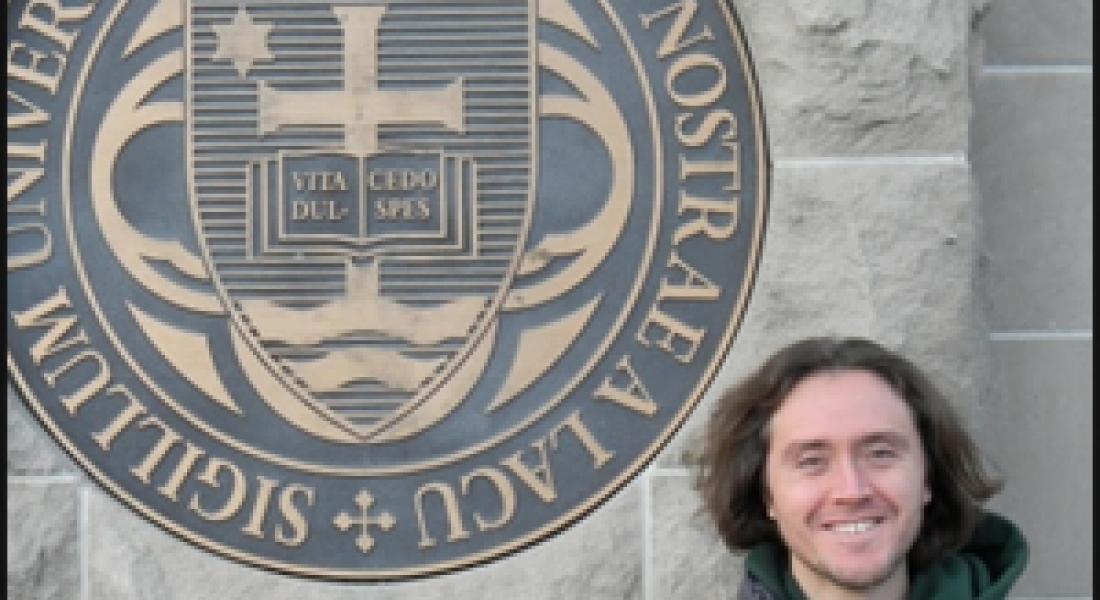
Former Kellogg PhD Fellow Alejandro Montecinos is motivated to create change in his native Chile and other developing economies. In January, PhD in hand, he returned to his hometown of Viña del Mar to continue with his research as an assistant professor at the Universidad de Adolfo Ibáñez.
“I want to improve the quality of life of poor people,” he says. “In Chile there are extremely high levels of income inequality that mask the reality of the true state of development for a large part of the population.”
Impressively, Montecinos completed his PhD in economics a semester early, says Denise Wright, the Institute’s graduate student program coordinator, who calls him “exceptional.” Montecinos was awarded a prestigious Becas Chile Fellowship as well as a Kellogg PhD Fellowship to pursue his graduate studies at Notre Dame.
“Alejandro was a model student,” says Faculty Fellow Thomas Gresik, his dissertation advisor. “He is intelligent and hardworking and brought a level of maturity and seriousness to our program.
“All of his work is theoretical, which in economics involves building formal mathematical models of behavior and then analyzing the models to generate predictions of how people will interact.”
“I wanted to be able to help solve important questions that affect a huge number of people,” says Montecinos, whose dissertation develops several new microeconomic theories, including one that evaluates strategic behavior and incentives surrounding firms’ research and development investments.
“This policy question is especially important with emerging economies because there is a significant incentive for some firms to simply copy competitors’ R&D investments, reducing the rate of innovation in an industry,” says Gresik.
“This is why I’ve focused my research on idea/knowledge creation,” asserts Montecinos. “The creation of new ideas that eventually can be translated into new businesses is a necessary condition to solve the problem of poverty, which is one of the biggest obstacles to human development.”
“You have to start creating ideas,” he says. “If you have the human capital, why do you not see the generation of new ideas? What is wrong with a system where the incentives are not there to innovate?”
As a Kellogg PhD fellow, Montecinos avidly participated in a variety of Kellogg events over the course of his time at Notre Dame. Additionally, in 2013, the Institute sponsored him to present at the Midwest Conference on Theory and Trade.
“Kellogg seriously supports research in economic development,” he says.
“The interdisciplinary dialogues and discussions facilitated by Kellogg make an impact on people’s dissertations,” claims Montecinos. “Kellogg is a place where interesting research ideas can be found and developed. It keeps you grounded and humble because you are reminded that there are different perspectives when viewing the same thing.”
These cross-disciplinary interactions and dialogues were valuable in helping him relate to the real world, he says. “If you look at the world from one perspective, you’re not going to be able to relate to the reality of things.”
Whether his career keeps him in Chile or takes him to other developing economies, the Kellogg community looks forward to following Montecinos as he tackles issues surrounding poverty, inequality, and development.
“Alejandro’s training and research gave him a great foundation to begin the next exciting stage of what I expect will be a long and productive academic career as an economist. I look forward to seeing his career blossom,” says Gresik.
Read Universidad de Adolfo Ibáñez article on Montecinos here.





